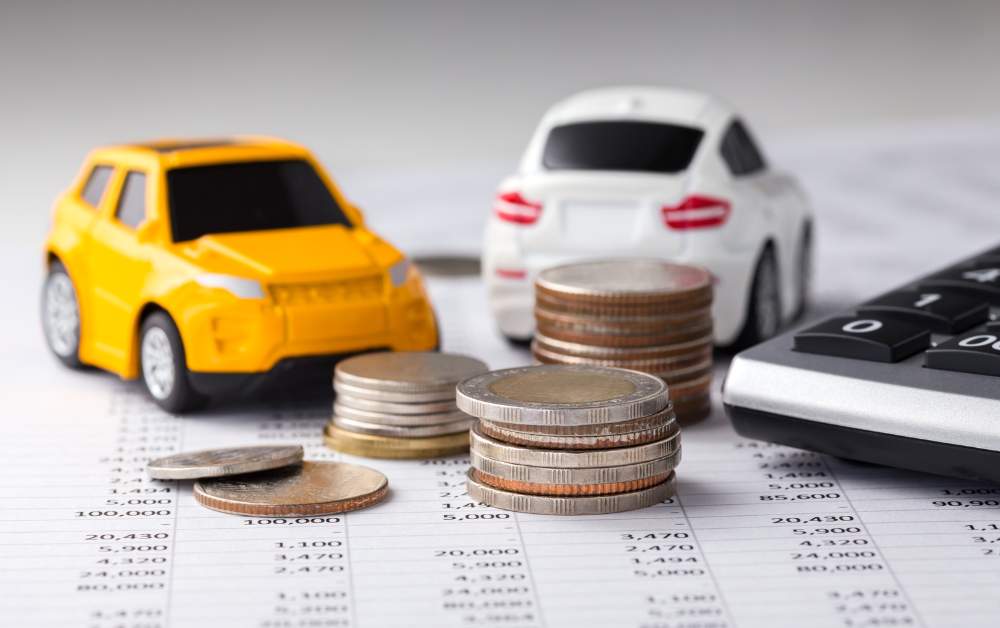How Can You Finance a Car with Bad Credit?

Financing a car when you have bad credit can be a daunting task, but it’s not impossible. Your credit score may have taken a hit due to various reasons, such as missed payments, bankruptcy, or high credit card balances. However, that doesn’t mean you can’t secure a car loan. In this comprehensive guide, we’ll explore the strategies, options, and tips for financing a car with bad credit, empowering you to make informed decisions and drive off in the vehicle you need.
Understanding Your Credit Score and Report
What Is a Credit Score?
Your credit score is a numerical representation of your creditworthiness. Lenders use it to assess the risk of lending to you. A higher score indicates lower risk, while a lower score suggests higher risk. FICO scores, ranging from 300 (poor) to 850 (excellent), are widely used by lenders.
Check Your Credit Report:
Request a free copy of your credit report from each of the three major credit bureaus (Equifax, Experian, and TransUnion) at annualcreditreport.com. Review your report for errors, inaccuracies, or fraudulent accounts that could be negatively affecting your credit score.
Understanding Credit Factors:
Your credit score is influenced by various factors, including:
- Payment History: Your history of paying bills on time or late.
- Credit Utilization: The ratio of your credit card balances to your credit limits.
- Length of Credit History: The age of your credit accounts.
- Types of Credit: The variety of credit accounts you have (e.g., credit cards, loans).
- Recent Inquiries: New credit applications and inquiries.
Improve Your Credit Score
1. Pay Bills on Time:
Consistently making on-time payments is the most effective way to rebuild your credit. Set up reminders or automatic payments to ensure you never miss due dates.
2. Reduce Outstanding Debt:
Lower your credit card balances and other outstanding debts. Aim to keep your credit utilization ratio below 30%, as high balances relative to your credit limits can negatively impact your score.
3. Establish Positive Payment History:
If you have existing loans or credit cards, continue making on-time payments to build a positive payment history. This demonstrates your ability to manage credit responsibly.
4. Avoid Opening New Credit Accounts:
Opening new credit accounts can lead to multiple inquiries, which can temporarily lower your score. Avoid applying for new credit while working on improving your credit.
Assess Your Budget
1. Determine Your Monthly Budget:
Calculate your monthly income and expenses, including fixed costs like rent or mortgage, utilities, groceries, insurance, and other bills. This exercise helps you understand how much you can allocate to a car payment without straining your finances.
2. Factor in All Costs:
In addition to the car loan payment, consider the full cost of car ownership. This includes insurance, fuel, maintenance, registration fees, and potential repair costs.
3. Down Payment:
If possible, save for a down payment. A down payment can reduce the amount you need to finance and may lead to more favorable loan terms. A larger down payment can also offset the negative impact of bad credit.
Financing Options for Bad Credit
1. Subprime Auto Loans:
Subprime lenders specialize in providing loans to borrowers with poor credit. While interest rates are typically higher than those offered to borrowers with good credit, these lenders may be more willing to work with you when traditional lenders decline your application.
2. Credit Unions:
Credit unions are member-based financial institutions that often offer more flexible lending criteria and competitive rates to their members. Joining a credit union can be a beneficial step to securing a car loan with bad credit.
3. Online Lenders:
Some online lenders focus on serving borrowers with bad credit. It’s essential to research reputable online lenders, compare their rates and terms, and read reviews from other customers to ensure you’re working with a trustworthy lender.
4. Buy Here, Pay Here Dealerships:
These dealerships both sell cars and finance them in-house. They may be willing to approve borrowers with bad credit. However, be cautious, as interest rates are often very high. Make sure you fully understand the terms of the loan before committing.
Preparing for the Loan Application
1. Gather Necessary Documentation:
Before applying for a car loan, collect all required documentation, such as proof of income (pay stubs or tax returns), proof of residence, and references. Being prepared simplifies the application process.
2. Know Your Credit Score:
Be aware of your credit score before applying. Understanding your score allows you to assess which lenders and loan terms are realistic based on your credit profile.
3. Consider a Co-Signer:
If possible, find a cosigner with good credit to support your application. A co-signer agrees to take responsibility for the loan if you default, making lenders more willing to approve your application and offer better terms.
Shopping for the Right Car
1. Set Realistic Expectations:
While it’s important to choose a car that suits your needs and preferences, be realistic about your budget and the types of vehicles you can afford with your credit situation. Luxury cars or brand-new vehicles may be out of reach.
2. Used vs. New:
Consider buying a used car, as they are generally more affordable than new ones. Research the vehicle’s history using tools like Carfax to ensure it has a clean record.
3. Get a Vehicle Inspection:
Before finalizing the purchase, have a trusted mechanic inspect the car to identify any potential issues. This can help you avoid costly surprises after the purchase.
Negotiating Loan Terms
1. Interest Rates:
When negotiating your loan, aim for the lowest interest rate possible. While bad credit may result in higher rates, shopping around and comparing offers from different lenders can help you secure more favorable terms.
2. Loan Term:
Choose a loan term that aligns with your budget. Longer loan terms may lead to lower monthly payments but can increase the overall cost of the loan through interest charges.
3. Read the Fine Print:
Before signing any loan agreement, carefully review the terms and conditions. Pay attention to any fees, penalties, or clauses that may impact your ability to repay the loan.
Post-Purchase Considerations
1. Make Timely Payments:
After securing a car loan, continue making on-time payments consistently. This demonstrates responsible financial behavior and contributes to the gradual improvement of your credit score.
2. Refinancing:
After a period of making timely payments and improving your credit, explore the option of refinancing your car loan. Refinancing can help you secure a lower interest rate, potentially reducing your monthly payments and the overall cost of the loan.
3. Monitor Your Credit:
Regularly monitor your credit report and score to track your progress. You can use free credit monitoring services to stay informed about any changes to your credit profile and ensure there are no errors or discrepancies.
Conclusion
Financing a car with bad credit may pose challenges, but with careful planning and a commitment to improving your creditworthiness, it’s entirely possible. By understanding your credit, creating a realistic budget, exploring financing options, and being diligent throughout the process, you can successfully secure a car loan that aligns with your financial situation. Remember that the journey to better credit and responsible car ownership begins with patience and smart financial choices.
Lorem ipsum dolor sit amet, consectetur adipiscing elit. Ut elit tellus, luctus nec ullamcorper mattis, pulvinar dapibus leo.
Related Articles

What Is Needed For Car Loan Eligibility?
In this comprehensive guide, we delve deep into the intricacies of car loan eligibility, equipping you with the knowledge and tools necessary to unlock the doors to your desired vehicle. From understanding the key factors that influence eligibility to practical steps for improvement, join us as we demystify the world of car loans and empower you to make informed decisions on your path to car ownership.

Exploring Factors and Solutions For Why Car Loan Rates Are So High
Let us dissect the intricate factors contributing to elevated car loan rates in this blog, also offering insights into the role of credit scores, economic dynamics, loan terms, market competition, and vehicle depreciation.

How Do Car Interest Rates Work?
With the soaring prices of vehicles, financing has become a common route for many to afford their dream cars. However, before delving into the world of car loans, it’s crucial to understand how interest rates play a pivotal role in shaping your financial commitments.

How Car Loans Works: Understanding the Mechanics
In the world of automotive dreams, the quest for that perfect car often leads us to explore the realm of car loans. Whether you’re eyeing a sleek sedan, a rugged SUV, or a sporty convertible, understanding how car loans work is paramount to navigating the journey towards owning your dream ride.




